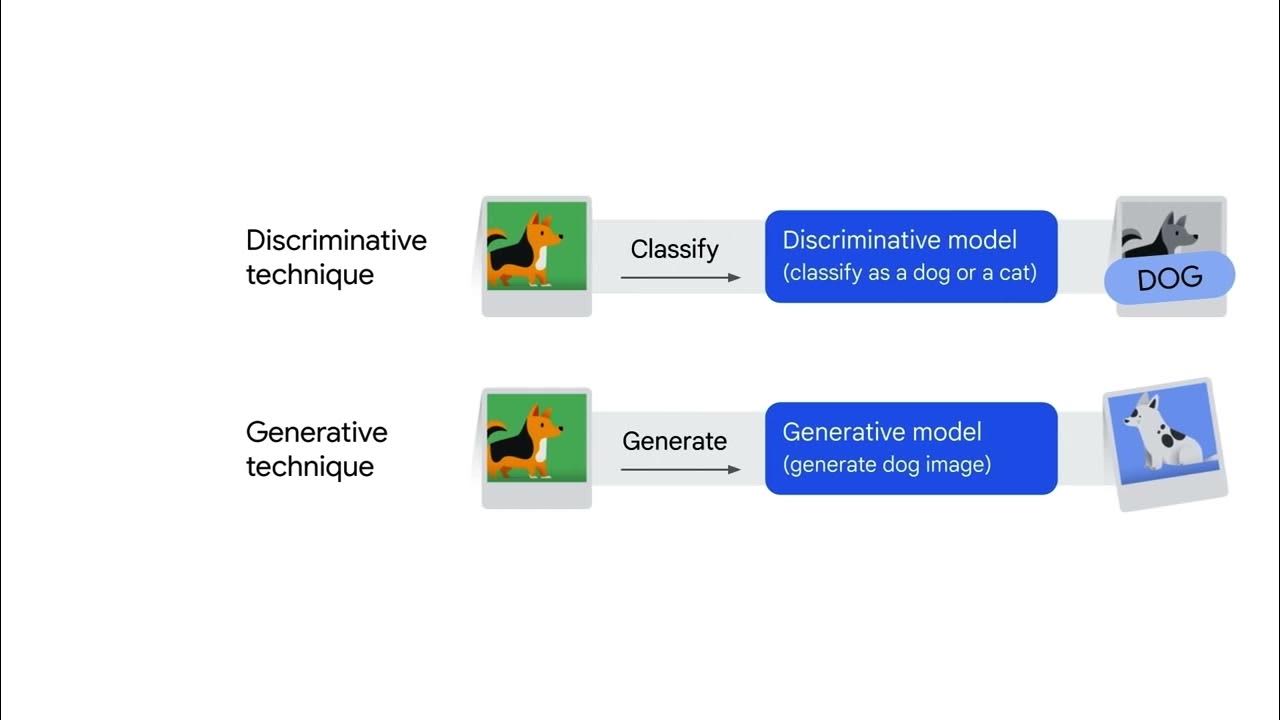Come pensa un’intelligenza artificiale? | Giulio Deangeli | TEDxBari
Summary
TLDRThis video delves into the transformative power of AI, highlighting the distinction between traditional AI (classification/regression) and generative AI (content creation). It discusses AI’s role in industries like medicine, where AI assists in drug discovery and decision-making, but human oversight remains essential. The speaker emphasizes that AI will not replace jobs directly but will augment human capabilities. Key concerns about access to AI and potential social inequalities are raised, stressing the importance of equitable access. Ultimately, AI is a tool that, when adopted responsibly, can empower individuals and industries alike.
Takeaways
- 😀 AI's impact on professions will involve automating repetitive tasks, while humans remain crucial in decision-making.
- 😀 AI can generate creative content like designs, but the human role is to choose what is appropriate for specific applications.
- 😀 In medicine, doctors will still decide if AI-generated solutions are suitable, emphasizing human judgment over automation.
- 😀 Resistance to adopting AI technologies will put workers at risk of losing their jobs.
- 😀 Generative AI can automate tasks like summarizing or drawing, freeing up time for humans to focus on more complex decisions.
- 😀 It's crucial for governments to ensure equal access to AI technologies to prevent social inequality and preserve mobility.
- 😀 If AI access is limited to certain groups, it could lead to a divide between 'first-class' and 'second-class' citizens.
- 😀 AI won't directly steal jobs but will change the nature of work, with humans using AI as a tool to complete tasks more efficiently.
- 😀 Understanding traditional AI techniques like classification and regression is important for adapting to new technological shifts.
- 😀 Generative AI enables the creation of texts, images, and more, relying on human creativity for direction and choice.
- 😀 The future of work will be shaped by those who embrace AI tools, while those who refuse may find themselves at a disadvantage.
Q & A
What is the main topic of the speaker's discussion?
-The speaker discusses the impact of artificial intelligence (AI) on various professions, focusing on how AI will automate certain tasks while humans will still play a key role as decision-makers.
How does the speaker describe the role of AI in creative fields like art?
-The speaker suggests that AI can assist in generating artwork, but the final decision about which pieces are suitable for specific applications will still rely on the artist's personal judgment and sensitivity.
What is the key difference between AI-driven automation and human involvement, according to the speaker?
-AI can handle repetitive and technical tasks, such as generating summaries or creating images, but human involvement is essential in evaluating the output and making decisions about its appropriateness.
What concern does the speaker raise regarding trust in AI for critical tasks?
-The speaker expresses skepticism about trusting AI completely, especially in areas like financial transactions or healthcare decisions, suggesting that humans should remain the ultimate decision-makers.
Why does the speaker believe certain professions may be at risk due to AI?
-The speaker argues that individuals who resist adapting to AI technologies may lose their jobs because the automation of tasks will make certain skills obsolete, particularly those that do not evolve with AI advancements.
How does the speaker view the future of job markets in the context of AI?
-The speaker suggests that AI will change job markets by eliminating some roles, but it will also create new opportunities for those who can adapt. The key challenge will be for workers to embrace AI rather than resist it.
What does the speaker mean by 'AI will not steal your job, but someone using AI might'?
-This phrase emphasizes that it is not AI itself that will replace workers, but rather individuals or companies who effectively utilize AI to perform tasks more efficiently, potentially displacing those who do not adapt.
What role do governments play in the widespread adoption of AI, according to the speaker?
-Governments are crucial in ensuring that AI technologies are accessible to everyone, as unequal access could lead to social division and reduced mobility, creating a society with 'A' and 'B' class citizens.
What are the potential risks if AI access is limited to a small segment of the population?
-If only a select few have access to AI technologies, it could exacerbate social inequality, leading to a lack of social mobility and creating a divide between those who can leverage AI and those who cannot.
What does the speaker mean by 'AI is no longer a choice'?
-The speaker is stressing that AI has already become an integral part of society and industries, and resisting its adoption will be counterproductive. AI is a transformative force that has already reshaped the world.
Outlines

此内容仅限付费用户访问。 请升级后访问。
立即升级Mindmap

此内容仅限付费用户访问。 请升级后访问。
立即升级Keywords

此内容仅限付费用户访问。 请升级后访问。
立即升级Highlights

此内容仅限付费用户访问。 请升级后访问。
立即升级Transcripts

此内容仅限付费用户访问。 请升级后访问。
立即升级5.0 / 5 (0 votes)






